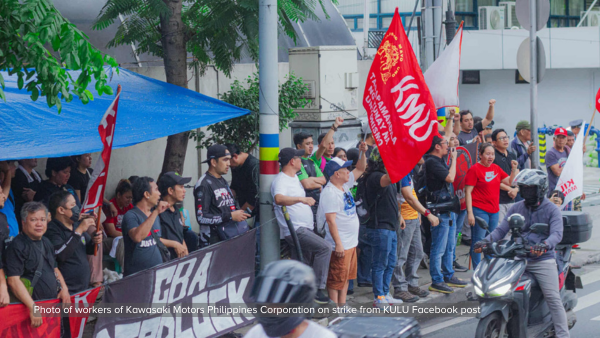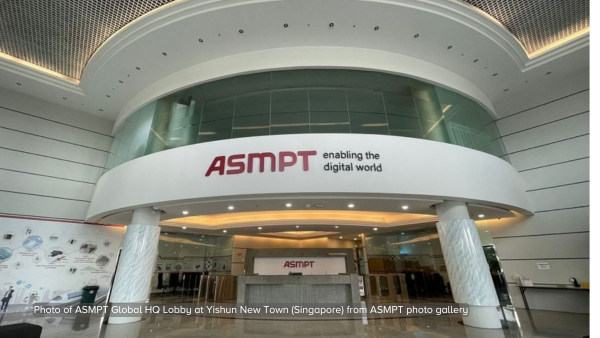Hong Kong-based labour group Students & Scholars Against Coporate Misbehaviour (SACOM) reports on labour abuses at iPad-mini manufacturer Riteng Computer Accessory Co., a subsidiary of Pegatron Corp. According to SACOM labour rights abuses are widespread at Riteng. SACOM points out that problems are rooted in Apple’s purchasing practice and its ineffective monitoring system.
iPad Mini-mizes Labour Rights
The gross and systematic labour abuses at the iPad mini manufacturer, Riteng Computer Accessory Co, demonstrate that Apple’s inaction in cleaning up its supply chain. Riteng is a subsidiary of Pegatron Corp in Shanghai, China. The factory is known to the public after an explosion in its polishing department last December, which caused injuries to 61 workers. Given the supplier’s poor record in workplace safety, the factory deserves special attention from Apple to address the labour rights violations in the facility. Disappointingly, labour rights abuses are widespread at Riteng. The problems are rooted in the purchasing practice of Apple and in its ineffective monitoring system.
In the first week of October, Students & Scholars Against Coporate Misbehaviour (SACOM) conducted off-site interviews with the Riteng workers. The following are the major labour rights violations found at Riteng:
Excessive overtime
Unlike other IT manufacturers which have a low season and peak season, there are peak seasons and super peak seasons at Riteng. Usually, workers have 10-hour work shift a day, 6 days a week. Overtime hours are about 80 hours per month, which exceeds the legal limit by 2 times. Meanwhile, in the super peak season, workers often have to work 5-6 hours overtime a day. The overtime work is up to 200 hours a month which is more than 5 times the legal limit. Riteng avoids documenting the overtime hours of the workers on their pay slip. It lists the overtime premiums to workers under the categories of allowances and bonuses.
Unpaid overtime
Besides excessive overtime, workers grumbled that they are often unpaid for overtime worked. Every day, the workers have to arrive in the factory 15 minutes before the regular work shift begins for a work assembly. After the work shift, there is another work assembly which lasts for 15 minutes. Even during 30-minute lunch period, workers have to return to the shop floor early to resume production or to attend another meeting. Apple and Riteng have promised that workers can have a 10-minute recess every 2 hours, but all the interviewees have never enjoyed this benefit. Together with the delays in getting off duty, workers estimate that the unpaid overtime is up to 20 hours per month.
Abusive use of student workers
SACOM researchers met some student interns at Riteng. They are organized by schools to do “internships” in the factory. Instead of learning skills related to their respective discipline, they work as frontline production workers. The student workers are given CNY 85 a day, including overtime premium pay. “The production target is 5000 pieces per day,” said a student from Sichuan Province who works in the polishing department that produces the iPad. “I am really exhausted. Like all other workers, we have overtime work everyday. The working environment is dusty and noisy. I want to go back to the school, but my teacher said we would not receive our graduation certificates if we left.”
Cheating on social insurance
Social insurance, which covers pension, work-related insurance and medical insurance, is mandatory according to the labour laws. Both employer and employee have to contribute to the social insurance fund. Regrettably, Riteng only buys insurance for the regular workers who have worked in the factory for 6 months. Yet, those who work as dispatched labour are not protected by the social insurance at all.
Exploiting dispatched labour
Dispatched labour, or sub-contractual workers, are easily found at Riteng. They are denied the fundamental rights to have an employment contract and social insurance. Additionally, they are not eligible for the annual production bonus. As the dispatched labourers are the employees of the labour agency, Riteng can evade responsibility if there are any labour disputes. Even worse, the dispatched labourers will find their lives even more precarious if they are diagnosed with occupational diseases or suffer industrial injuries.
Pressuring injured workers
The explosion at Riteng injured 61 workers. Among the victims, were many who suffered skin burns and even disfigurement, while some of them suffered bone fractures. To this day, some workers are still hospitalized. During the medical treatment in the hospital, the injured workers are entitled to a monthly salary which is equivalent to their respective salary in the past 12 months. Yet, several injured workers revealed that they only receive CNY 1800 a month and the amount was much less than the amount they deserve according to the law. The victims reported that management does not show concern for the well-being of the victims, and asks them to sign several agreements to give up their rights. Two injured workers confided in SACOM researchers that the factory deliberately relocated them to smaller hospitals soon after the tragedy lest the victims would organize themselves. An injured worker even told that the factory threatened not to pay her compensation if she refused to move to the dormitory. She resisted.
Hazardous working environment
In the aftermath of the explosion, Riteng has not learned a lesson from the tragedy. In the polishing department, the shop floor is still filled with dust. The ventilation is poor and the masks used are ineffective in protecting workers. The dust can penetrate the mask and goes into the nose and mouth of the workers. The face of workers is covered with dust because of the dusty working environment.
“Cutting fluid” is commonly used by the machine operators. Workers complained of the strong and unpleasant odour of the chemical. In fact, they are equipped with surgical masks only. They do not know anything about the substance of the chemical and do not feel the mask can protect them at all.
Apple is root problem of the violations
To divert the public criticism about Apple’s unethical labour practices, the company joined the Fair Labor Association (FLA) in January 2012. Apparently, Apple seeks to distance itself from the problems at its supplier factories. Nevertheless, Apple is not the victim of the scandals at its supplier factories. It is the root problem. SACOM reiterates that only if workers can form genuine unions to defend their rights, working conditions can be improved. Equally important, Apple must raise the unit price and prolong the delivery time, so workers do not need to have excessive overtime to earn a living. Apple should also provide remedies to the workers for its negligence in enforcing labour rights standards.









